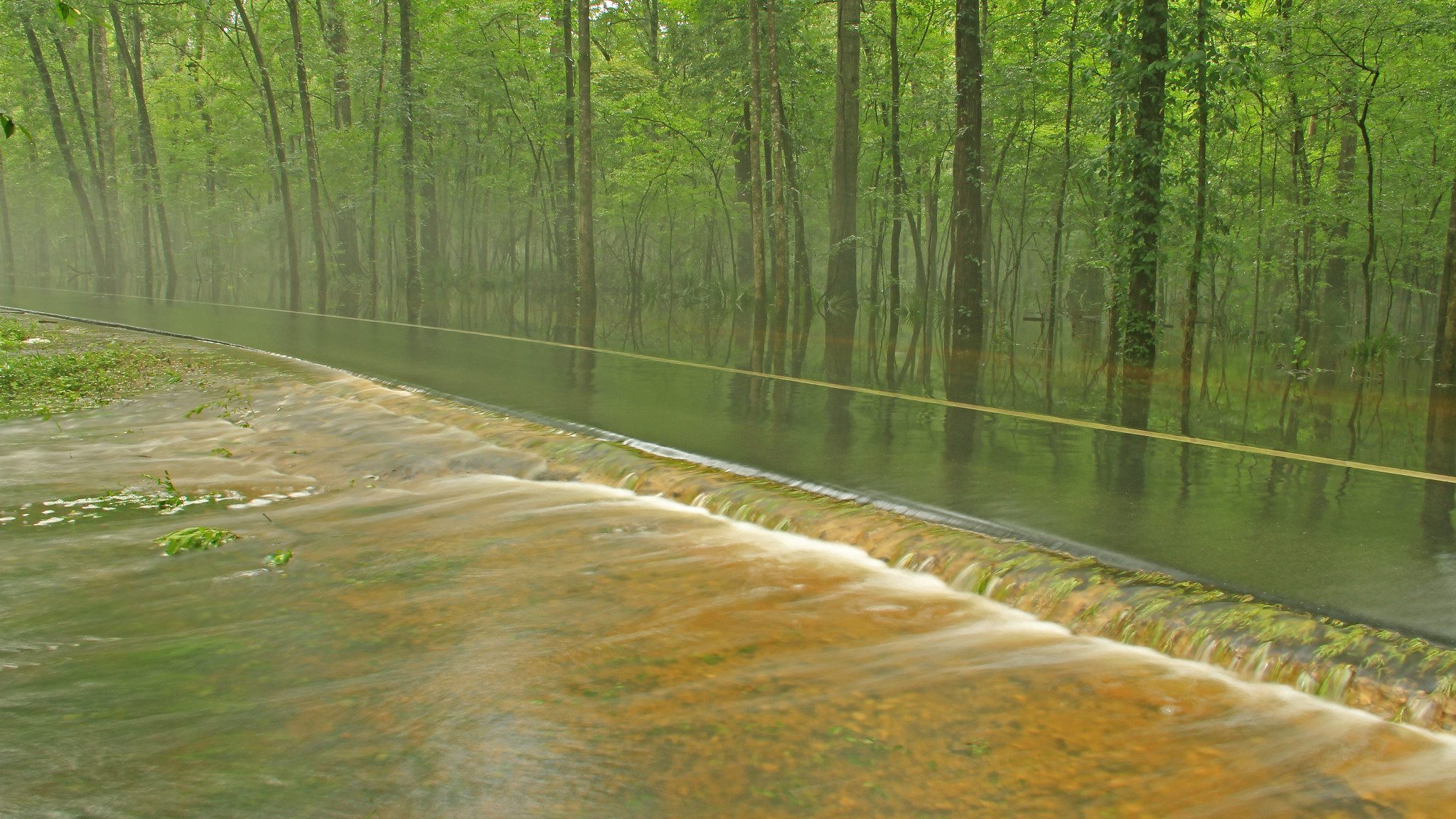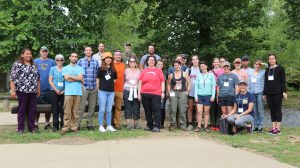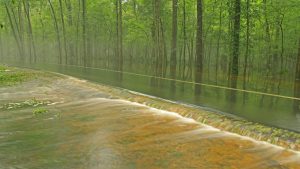Late Summer 2019 Newsletter

Late Summer 2019 Newsletter
Welcome to the Southeast Climate Adaptation Science Center’s Late Summer 2019 Newsletter
For news and upcoming events related to the Southeast Climate Adaptation Science Center, subscribe to our monthly newsletter.

Southeast Climate Adaptation Science Center News
 Registration for the 2019 SE CASC Regional Science Symposium, including Poster and Tools Networking session and Field Trip is now open! Get more information and register here for the event and apply here to present at the Poster and Tools session. Deadline for submitting abstracts to Poster and Tools session has been extended to Sept. 16.
Registration for the 2019 SE CASC Regional Science Symposium, including Poster and Tools Networking session and Field Trip is now open! Get more information and register here for the event and apply here to present at the Poster and Tools session. Deadline for submitting abstracts to Poster and Tools session has been extended to Sept. 16.
SE CASC staff, along with 2019-20 Global Change Fellows and other University Consortium graduate students, spent a week in the Great Smoky Mountains at the SE CASC Climate Adaptation Science Field Intensive. Read more.
Plan to join our NCA4 Webinar Series, focused on the four key messages from the Southeast chapter of Volume II, as well as the Tribes and Indigenous Peoples chapter. First webinar is Wed., Sept 25, 12 – 1 pm ET, on Southeast Key Message 1: Urban Health Risks. Register here.
Save the date for this semester’s first Global Change Seminar, led by Global Change Fellows, on Thursday, September 26 from 3:30pm – 4:30pm, 101 DCL. Check our website for more details.
SE CASC and HazNerds is facilitating a Global Change and Resilience Reading Group to bring students and faculty from diverse disciplines together to discuss current publications on topics of global change and resilience. The group will meet every other Wednesday beginning September 11. If you’re interested in attending, complete this form.
Several SE CASC Consortium Researchers and Global Change Fellows presented at the 2019 Annual Meeting of the Ecological Society of America. Stay tuned for video releases of these presentations.
Our Global Change Fellows continue to publish, earn accolades, do outreach, and advance their research! Learn more in our Global Change Fellows Summer News Roundup.
Partners/stakeholders in eastern Tennessee area: note several conservation-related events being held at Consortium University of Tennessee, in Upcoming Events section below.
Leadership in Public Science Faculty Cluster, comprising several Faculty Affiliates, are sponsoring several workshops and seminars this upcoming semester. Learn more.
New Researcher Spotlights: Tribal Climate Science Liaison, Casey Thornbrugh, and Global Change Fellows Deja Perkins and Laura Hamon.

Resources
FEATURED RESOURCE
Coastal Inundation Dashboard
 NOAA has released a new online tool to help communities better prepare for coastal flooding. This comprehensive map combines real-time water level information, 48-hour forecasts of water levels, & storm surge and historic flooding information. This information will help community residents and decision makers to better understand their short and long term risks of hurricanes and flooding. Learn more.
NOAA has released a new online tool to help communities better prepare for coastal flooding. This comprehensive map combines real-time water level information, 48-hour forecasts of water levels, & storm surge and historic flooding information. This information will help community residents and decision makers to better understand their short and long term risks of hurricanes and flooding. Learn more.
The State of Climate Adaptation in Public Health: An Assessment of 16 U.S. States. EcoAdapt’s State of Adaptation Program partnered with the Natural Resources Defense Council to assess the state of climate adaptation planning and implementation for climate-related threats to public health in 16 U.S. states. Two states in the SE CASC footprint are included in this assessment – Florida and North Carolina. Link to article.
Explore the history of fire in Big Cypress National Preserve and Everglades National Park. A Ph.D. student in the NCSU Center for Geospatial Analytics has developed a data visualization tool for managers at Everglades National Park and Big Cypress National Preserve in Florida to examine trends in fire over time. Learn more.
National Integrated Drought Information System (NIDIS). This program was initiated by Congress in 2006 with a mission of integrating drought research. Since then, the NIDIS has built upon existing federal, tribal, state, and local partnerships in support of creating a national drought early warning information system. Learn more.
Heat-Health Vulnerability Tool (HHVT). Geared towards public health officials and emergency management personnel, The HHVT is a web-based tool that predicts the daily number of emergency department visits for heat-related illnesses across North Carolina. Learn more.
NOAA OceanReports. The resource allows users to customize their spatial extent of interest and provides detailed reports containing general information, renewable energy capacity, conservation highlights, biophysical data, and an overview of the infrastructure and economic capacity of the selected region. Learn more.
In the Media
Mississippi River flooding and Hurricane Barry could have inundated New Orleans. Here are four actions we need to take before that happens again. Environmental Defense Fund
Climate change: Current warming ‘unparalleled’ in 2,000 years. BBC
Gullah-Geechee Community: Hear Us On Climate Change. The Root
As the Climate Heats Up, Efforts to Build more Resilient Communities Go Beyond Infrastructure. ENSIA
An innovative way to publish. Nature

Notable Publications
Prioritizing the conservation needs of United States tree species: Evaluating vulnerability to forest insect and disease threats. The United States Forest Service has developed a conservation priority-setting framework for native forest tree species that are at risk from insects, disease, and other threats. The project CAPTURE (Conservation Assessment and Prioritization of Forest Trees Under Risk of Extirpation) framework was used to quantitatively group 419 native North American tree species into 11 various vulnerability classes. The classification was based upon the severity of insect and disease threat, sensitivity to infestation, and capacity to adapt to the infestation. The project identified 15 species requiring immediate conservation intervention and others were shown to have high sensitivity or low adaptive capacity, suggesting a need for close monitoring. This decision making assessment tool is valuable for those in charge of conservation monitoring and management of these species. Link to article.
Climate change lengthens southeastern USA lightning‐ignited fire seasons. Researchers examined changes in annual dry season length, total precipitation, and the seasonal distribution of thunder‐days as a correlate of lightning activity for the southeastern coastal plain region to detect changes in climatic fire season. The dataset encompassed values from 1897-2017 and analysis determined that the dry season has lengthened by 156 days across the entire region (130% over 120 years). This combination of less rainfall over a longer dry season increases the potential for lightning-ignited wildfires and fire severity in the region. Link to article.
Seeking shelter from the storm: Conservation and management of imperiled species in a changing climate. In October 2018, Hurricane Michael severely impacted St. Marks National Wildlife Refuge, which sits along with northern Gulf of Mexico’s coast. Particularly, this coastal landscape experienced a storm surge that measured 2.3 to 3.3 m above sea level. Consequently, sea water was pushed into freshwater ponds used to breed the federally-threatened Frosted Flatwoods Salamander (Ambystoma cingulatum). After the storm, affected areas showed conductivity that was 11.2 to 216.7 times greater than in spring 2018, implying a variety of population responses across the landscape. While the demographic consequences of the storm cannot yet be assessed, researchers note the existence of flatwoods salamanders in both overwashed and non-overwashed sites. Link to article.

Tribal News
Tribal Greenhouse Gas Inventory Tool. This tool was developed to help tribes across the country evaluate their greenhouse gas emissions. The interactive spreadsheet calculates greenhouse emissions for many sectors, including residential, commercial, transportation, and waste and water management. Learn more.
2019 Tribal GIS Conference. The annual Tribal GIS conference will be held from November 18-22 in Albuquerque, New Mexico. This conference aims to bring together representatives from industry, academia, and federal agencies to exchange interdisciplinary information regarding the real-world application of geospatial technologies. Learn more.

Regional Partner News
South Atlantic LCC: Guess some trends in Southeastern ecosystem indicators
National Fish and Wildlife Foundation: NFWF Announces New Emergency Coastal Resilience Fund
Gulf of Mexico Alliance: Gulf of Mexico Alliance Receives EPA Grant to Improve Access to Sediment Resource Information
Association of Fish and Wildlife Agencies: Save the Date: AFWA Annual Meeting
Sentinel Landscapes Partnership has released their 2019 Accomplishments Report

Webinars
Sept 9 | 3PM – 4PM | Accelerating Collective Learning and Action for Enhanced Resilience
Sept 10 | 2PM – 3PM | Visualizing Uncertainty
Sept 12 | 1PM – 2PM | Fellowship of the Rain (Gauge Network)
Sept 18 | 12PM – 1PM | Assimilation of Satellite Microwave Observations in the Rainband of Hurricanes using a Novel Bayesian Monte Carlo Technique
Sept 25 | 12PM – 1PM | NCA4 Southeast Key Message 1: Urban Health Risks

Upcoming Events
Find more upcoming events in our calendar.
Sept 10 | Dr. Richard Grounds on the 2019 International Year of Indigenous Languages | Pembroke, NC
Sept 9-11 | 2019 Annual Gulf Coast Land Conservation Conference | Point Clear, AL
Nov 13-15 | SE CASC Regional Science Symposium | New Orleans, LA
At NC State and Our Consortium Universities:
Sept 16 | Workshop: Project Evaluation, Quick & Dirty | Talley Student Union, Room 4270
Sept 23 | Energy and the Environment Forum: Science at The Nature Conservancy | Toyota Auditorium
Sept 26 | Global Change Seminar | 101 David Clark Labs
Sept 27 | Cod to caribou: Valuing natural capital based on ecological dynamics | 307 SERF

Opportunities
Student Announcements
The University of Florida is seeking a graduate student to work on a project that provides decision support to managers (e.g., US Fish and Wildlife Service) for coastal marine ecosystem restoration, characterized by complex dynamics that interact among multiple system processes, and for which stakeholder values and benefits are not always explicitly identified. The student will focus on the development of ecological models and decision analysis. Applicants should submit a cover letter, resume (or curriculum vitae), copy of transcripts, and the contact information of three professional references to Dr. Bill Pine at oysterproject@ifas.ufl.edu by Sept. 20, 2019.
Hiring Announcements
The National Parks Service is hiring an Interdisciplinary Climate Change Science and Adaptation Coordinator. The position is the lead for fostering and coordinating climate change science and adaptation efforts to support national park managers through program products and relationships, engaging scientists and managers in conducting vulnerability assessments and implementing climate adaptation strategies within parks, and collaborating at landscape scales. Applications are due by Sept. 18. Apply here.
The North Carolina Sea Grant is seeking a Coastal Aquaculture Specialist to support the development, expansion, and diversification of the North Carolina aquaculture industry. The position is stationed in Morehead City, North Carolina and the proposed hire date is Oct. 28. Apply here.
Research Grants
The Environmental Protection Agency, as part of the Science to Achieve Results (STAR) program, is accepting transdisciplinary research proposals to investigate the effects of natural disasters that can produce results to help communities build better resilience to these threats. The application period closes on Sept. 17. Apply here.
Sustainable Forestry Initiative announces its annual request for proposals for their Conservation Grants Program to provide science-based data needed by resource professionals to improve forest management and to assess conservation values. Proposals are due Sept. 30. Learn more.
The North Carolina Sea Grant has opened the application period for the mini-grant program. This program funds small projects which cost less than $10,000, to allow scientists to gather samples and data when time is of the essence. The applications will be reviewed on a rolling basis and there is no application deadline. Learn more.
- Categories:

